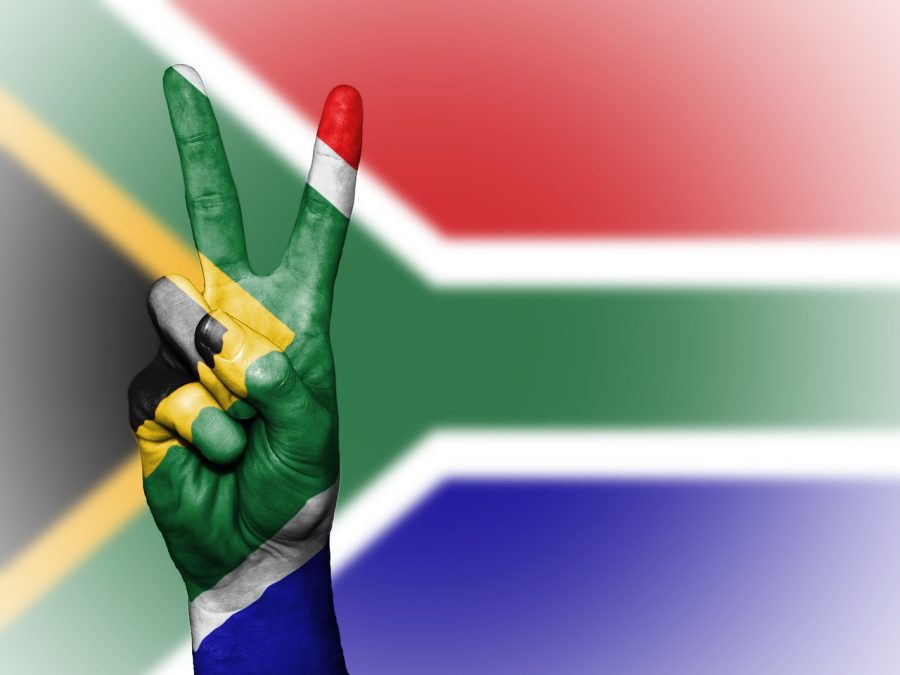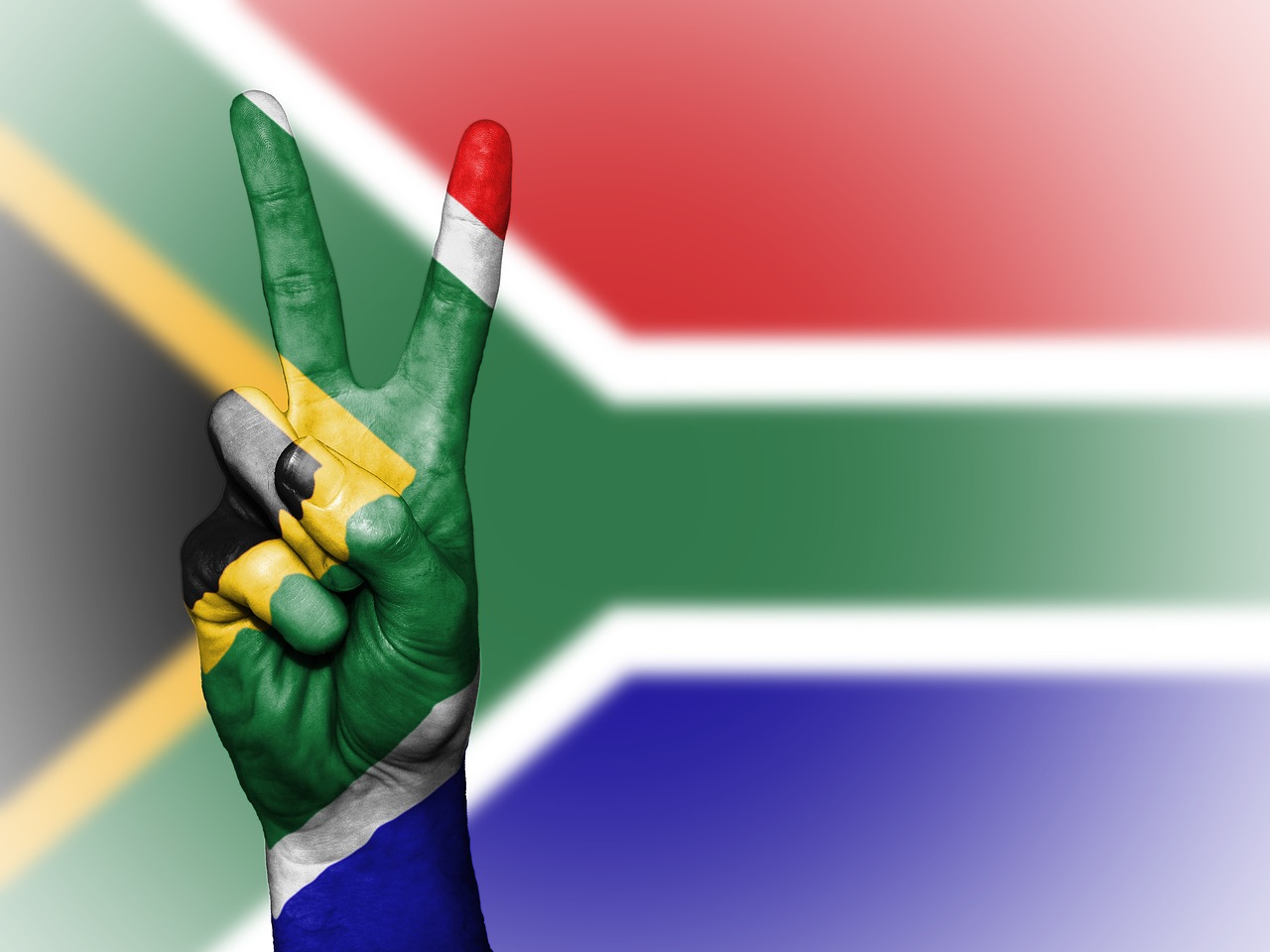
Our Heritage: Learn to Proudly Speak South African
As today is the last day of Heritage Month, it’s important to note that our languages are more than the rhythm of the sounds we use when we communicate, They are the sounds of our unique multilingual, diverse South African heritage and can be used in Nation Building, in tolerance and in building a deeper […]

As today is the last day of Heritage Month, it’s important to note that our languages are more than the rhythm of the sounds we use when we communicate, They are the sounds of our unique multilingual, diverse South African heritage and can be used in Nation Building, in tolerance and in building a deeper understanding of our South African people of different cultures, tribes, races and languages in a practical and continuous form… writes Neo Nino Mofokeng.

Our Languages, Our Heritage – Using Them to Have a More Tolerant and Inclusive South Africa
You may be wondering if this is another typical article that’s trotted out during September because it’s Heritage Month and because 24 September is observed as a National Heritage Public Holiday…
Well… no!
This article seeks to shine a light on an aspect that is usually overlooked during Heritage Day and Heritage Month celebrations… an aspect that is one of the most critically important for the South African Rainbow Nation Vision that is championed by our global living icon, uTata Archbishop Desmond Tutu.
Cracking Down On the Divisive Heritage Celebrations
If I were a legislator or an MP, I would propose passing a bill that renames 24 September’s Heritage Day to ‘South African Heritage Day’, which is in my opinion a less divisive and inclusive concept of celebrating our joint South African Heritage, beyond the category-based celebrations we’ve seen on Sunday the 24th of September celebrations.
My concept of a joint South African Heritage celebration is not one that pinpoints our ancestry or tribe by taking individualistic pride in our different Heritages – like, using me for example, as a Mosotho pinpointing and taking pride in the most celebrated BaSotho king, Moshoeshoe; and a Zulu person pinpointing Shaka, the most celebrated of their kings; and a White Afrikaner person pinpointing Jan Van Riebeck as their founding father of the Dutch diaspora that’s mixed with the French and German diaspora in Southern Africa and the predominately Afrikaans Coloured (mixed race) South African people.
See where I am going with this?
Divisive celebration of our individualistic tribes means celebrating figures that are seen as controversial to different people of South Africa who are of different backgrounds, be they Black, White, Coloured or Indian.
Heritage Day and Month as an important Apolitical Public Holiday
Holidays such as Heritage Day should be apolitical, non tribal and non racial Public Holidays… in which we celebrate Being South African and not being ‘What type of a South African are you’.
How lekker is that? So lekker my bruu… or should I say my China?
The background of the Heritage Day Holiday
When the Public Holidays Bill was presented to Parliament in 1995, Shaka’s Day (24 September) was not included as a proposed public holiday. The Inkatha Freedom Party(IFP), which largely represents Zulu people, objected… and a compromise was reached to name the new public holiday as Heritage Day so that all South Africans could observe and celebrate their diverse cultural heritage.
In a Key Note Address, former President Nelson Mandela said: “When our first democratically-elected government decided to make Heritage Day one of our national days, we did so because we knew that our rich and varied cultural heritage has a profound power to help build our new nation.”
As my views are the same as that of Mandela – in using our heritage in practical terms – which is our languages to help build our new joined rainbow nation (I think that I deserve a Bells isn’t it?)
Language as a profound power that can be used to build our nation
As Afrikaans is the only and youngest official South African language in the world that also refers to Africa as its prefix, by principle it should be crucially important to replace English with Afrikaans as a South African lingua franca. (Can I get a TjoviTjo (endorsement) please?)
Before being literally killed by anti-Afrikaans activists for jokingly endorsing Afrikaans, by principle there should not be any South African official languages opposed or seen as more important than the other… if we would use all 11 official languages in an official status.
Using our languages profoundly as a Heritage ‘nation building’ strategizer is important for anyone who believes in a more tolerant, racially, religiously and culturally inclusive Rainbow Nation South Africa as envisioned by uTata Desmond Tutu.
Learn another South African language to be More Saffer Wise
 Evolving from using the popular South African Afrikaans slang word lekker to monate neh! or mmandi, takalela or… ngiyakutsandza, my personal favourite lekker word. Trying this it shows me how much learning new words and languages helps me to know more and appreciate different South African languages and cultures.
Evolving from using the popular South African Afrikaans slang word lekker to monate neh! or mmandi, takalela or… ngiyakutsandza, my personal favourite lekker word. Trying this it shows me how much learning new words and languages helps me to know more and appreciate different South African languages and cultures.
Takalela is now my lekker synonym in another South African language.
Are you takale-ling the Saffer lingo(s)?
The beauty of our Rainbow Nation can only be realized and appreciated more when we takalela our South African languages. Being a White or – I’m sorry a culturally acceptable word when referring to a person – White South African adult – who can voluntarily learn any language of the majority of the population or take their young children “as they learn languages quickly” to learn a Black South African language that’s relevant and used by the majority of people in your geographical area is a HUGE step in making yourself, as any person in the minority, feel more integrated in the broader South African society.
“Voetsek, Wena Wanya Tsotsi neh!”
Imagine yourself being a White South African in a mugging incident while taking a walk. After your possessions are snatched from you, imagine as a White Saffer responding to a Black Saffer thief “tsotsi” in a Sesotho dominated area by saying: “Wena mara wanya tsotsi neh!” (But you are shit, neh!) or “Tsotsi manyella shame!” (Shame! thief you are shitting on me).
Imagine the shock AND the appreciation from the thief. It might even make him give you your good backs if you’re using his language. (I can’t guarantee how effectivelyt this might work!)
“If you talk to a man in a language he understands, that goes to his head. If you talk to him in his language, that goes to his heart.” – Nelson Mandela
I’m sure that you have realized the vulgar language I’ve used in the above passage… so if you are sensitive, excuse me… but blame the South African Police Minister who launched an anti-crime campaign called #WanyaTsotsi that has trended on South African Twitter many times, with some tweets exposing the best of Saffer humour.
Still on #WanyaTsotsi – a White acquaintance of mine shocked me the other day when we were playing (being typical boys) – fighting and hitting each other with fists. After the White lad had overpowered me, I said quietly in Sesotho to a Black friend of mine who was close (with the assumption that the White acquaintance wouldn’t understand): “Watseba ke ne kesa nahane hore die man ka mokhaba wa hae o tseba ho lwana so” (“You know ,I never thought that this guy would know how to fight this much with that belly”). The shocked response of my White acquaintance was: “Wena mara ong tlwaela masepa neh!” (Which roughly translates to: You despise me, you are shitty on me, neh!”
After his response – in my Sesotho first language – I was equally shocked , filled with laughter and a bit disgruntled as he had used a swear word on me. BUT I also appreciated the fact of him knowing my language.
“To have another language is to possess a second soul.” ‒ Charlemagne
So, how about possessing a South African language by learning another language?
Proudly speak South African!
The benefits of being a minority and learning a Black South African language outweigh being in the dark and being ignorant of the culture the South African majority possess. Gain the understanding of the humorous Twitter Tweets behind hashtags such as #LearnSataFrikan that make fun of our South African slang – which includes many indigenous and non-South African languages black people use when chatting in areas that are the melting pot of Africa…
By Neo Nino Mofokeng
Need some inspiration to get going? Watch this awesome Afrikaans toddler speaking Xhosa:
https://youtu.be/Td4SjzfC1yI
